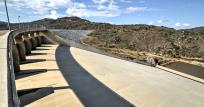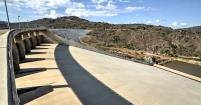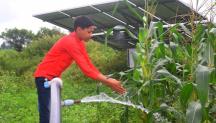

Renewable Energy Key to Achieving Socio-Economic Development in Swaziland, Says New IRENA Report
Newsletter
Locally generated renewable energy could reduce electricity costs, improve energy access and increase Swaziland’s energy independence
Ezulwini, Swaziland, 19 March 2015 – Developing Swaziland’s vast renewable energy resources would provide substantial socio-economic benefits for its population, according to a new report by the International Renewable Energy Agency (IRENA). The Swaziland Renewables Readiness Assessment estimates that bagasse, a by-product of the local sugar industry, could meet half of all domestic electricity demand, while solar power could contribute substantially to the remaining demand.
More than 76 per cent of Swaziland’s current electricity supply comes from imports, predominantly from South Africa. Electricity import tariffs in Swaziland doubled between 2009 and 2012 and are expected to continue this upward trend. This, combined with the falling cost of renewable energy technologies, makes renewable energy more cost competitive in Swaziland than ever before.
“Renewable energy is no longer just the best choice socially and environmentally, it is also the best choice economically for many countries in many parts of the world,” said IRENA Director-General Adnan Z. Amin. “It has never been cheaper for Swaziland to reduce its electricity costs, increase its energy independence and improve energy access through the rapid deployment of renewable energy.”
Roughly 45 per cent of Swaziland’s population does not currently have access to electricity. The report estimates that the country’s solar resources, combined with the falling cost of solar PV, could bring electricity to more people through the deployment of decentralized solar PV systems.
Swaziland forms a key link in the Africa Clean Energy Corridor, IRENA’s initiative to meet Eastern and Southern Africa’s growing power needs sustainably and with a high share of renewables. As Swaziland is interconnected with Mozambique and South Africa, it could potentially use this existing infrastructure to develop more renewable energy than is needed for the country and sell its surplus power, moving it from an electricity importer to an electricity exporter.
Renewables Readiness Assessments (RRAs) offer a holistic evaluation of conditions for renewable energy deployment in a country, and outline the actions necessary to further improve these conditions. The Swaziland RRA recommends the country undertake various measures to support the implementation of renewable energy including: extending existing tax credits to the sugar industry to incentivize investment in more efficient equipment for bagasse-based power generation; conducting a detailed assessment of the economic potential of bagasse and solar resources; creating an enabling environment for renewable energy independent power producers; and developing a comprehensive grid code, amongst other recommendations.
“The RRA has been a useful tool for Swaziland as we embark on a domestic renewable energy programme,” said Swaziland Minister of Natural Resources and Energy, Jabulile Mashwama. “The RRA has assisted the Ministry in identifying renewable energy technologies that are ready for development and have potential for investment. The assessment also assisted in providing guidance and prioritization on those technologies that require further investigation.”
Since 2011, more than 20 countries in Africa, the Middle East, Latin America, the Caribbean, Asia and the Pacific Islands have undertaken the RRA process with IRENA to accelerate the deployment of renewable technologies domestically.
The Government of Swaziland and IRENA co-organized a workshop today in Ezulwini Swaziland to launch the Swaziland RRA and bring partners together to discuss implementation. Representatives from the Government of Swaziland, IRENA, the Swaziland Electricity Company, the Swaziland Electricity Regulatory Authority, the United Nations Development Programme (UNDP), the United Nations Environment Programme, the African Development Bank, the World Energy Council, World Bank, the private sector and research institutions are in attendance.
The Sustainable Energy for All Rapid Assessment and Gap Analysis report, compiled with assistance from the UNDP, was also launched at the event.
Download the full report here.




